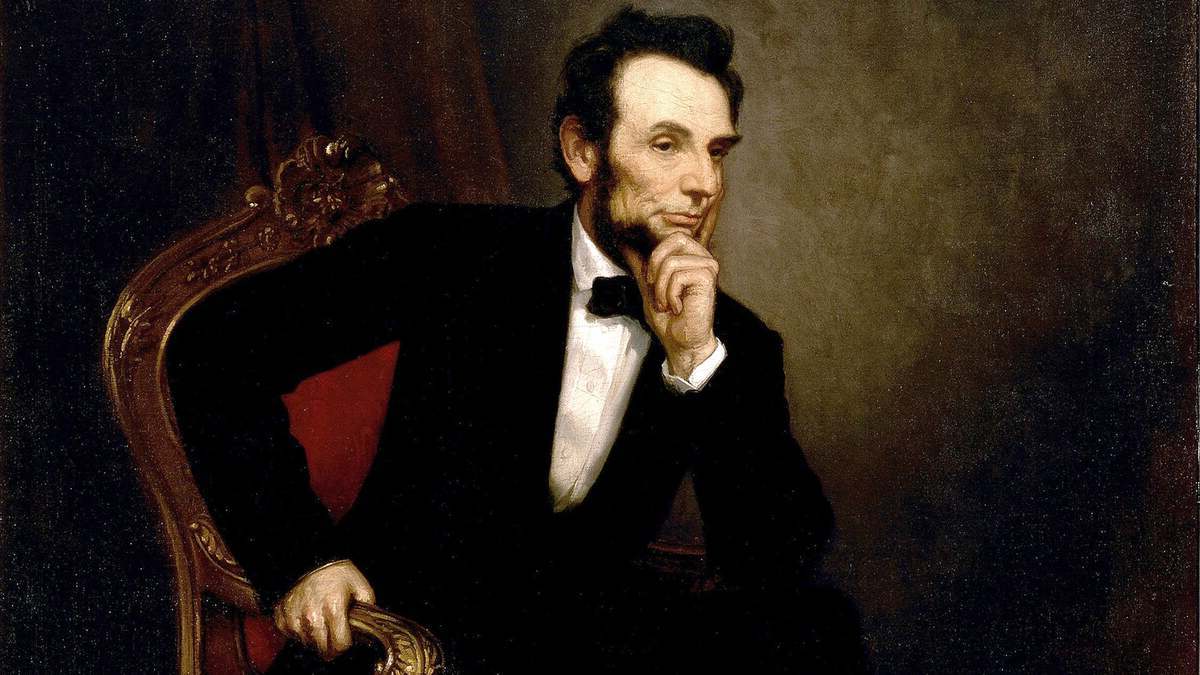
Did you know Abraham Lincoln was the tallest U.S. president? Standing at 6 feet 4 inches, he towered over his contemporaries. Born in a humble log cabin in Kentucky, Lincoln's journey to the White House is nothing short of inspiring. He led the country through the Civil War, preserving the Union and abolishing slavery. Known for his eloquent speeches, like the Gettysburg Address, Lincoln's words still resonate today. His assassination in 1865 shocked the nation, but his legacy endures. From his early days as a self-taught lawyer to his iconic stovepipe hat, Lincoln remains a fascinating figure in American history. Ready to learn more? Let's dive into 20 intriguing facts about Honest Abe!
Early Life and Education
Abraham Lincoln's journey from a humble beginning to the presidency is filled with fascinating details. Let's explore some intriguing facts about his early life and education.
- Born on February 12, 1809, in a log cabin in Hardin County, Kentucky, Lincoln's early life was marked by poverty and hard work.
- His mother, Nancy Hanks Lincoln, died when he was just nine years old, leaving a significant impact on his childhood.
- Lincoln had less than a year of formal schooling. He was mostly self-taught, often borrowing books to read by the light of the fireplace.
- Despite his limited education, he developed a love for reading and learning, which played a crucial role in his intellectual development.
Political Career
Lincoln's political career is a testament to his determination and leadership. Here are some key facts about his rise in politics.
- Lincoln first entered politics in 1832, running for the Illinois State Legislature. Although he lost, it marked the beginning of his political journey.
- He served as a member of the Illinois State Legislature from 1834 to 1842, where he gained a reputation as an effective and persuasive speaker.
- In 1846, Lincoln was elected to the U.S. House of Representatives, where he served a single term.
- He became a prominent figure in the newly formed Republican Party, which opposed the expansion of slavery into new territories.
Presidency and Civil War
Lincoln's presidency was defined by the Civil War and his efforts to preserve the Union. Let's delve into some significant aspects of his time in office.
- Elected as the 16th President of the United States in 1860, Lincoln faced the secession of Southern states and the outbreak of the Civil War.
- He delivered the famous Gettysburg Address on November 19, 1863, emphasizing the principles of human equality and the importance of preserving the Union.
- Lincoln issued the Emancipation Proclamation on January 1, 1863, declaring all slaves in Confederate-held territory free.
- His leadership during the Civil War was instrumental in the Union's victory and the eventual abolition of slavery.
Personal Life
Beyond his political achievements, Lincoln's personal life offers a glimpse into the man behind the legend. Here are some interesting facts about his personal life.
- Lincoln married Mary Todd on November 4, 1842. They had four sons, but only one, Robert Todd Lincoln, survived to adulthood.
- He was known for his sense of humor and often used anecdotes and stories to make a point or lighten the mood.
- Lincoln was a skilled wrestler in his youth and was inducted into the National Wrestling Hall of Fame in 1992.
- He suffered from depression throughout his life, a condition that was exacerbated by the deaths of his mother and two of his sons.
Legacy and Impact
Lincoln's legacy continues to influence American society and politics. Here are some facts about his enduring impact.
- He was assassinated by John Wilkes Booth on April 14, 1865, just days after the end of the Civil War, making him the first U.S. president to be assassinated.
- Lincoln is often ranked as one of the greatest U.S. presidents due to his leadership during the Civil War and his efforts to end slavery.
- The Lincoln Memorial in Washington, D.C., dedicated in 1922, stands as a tribute to his legacy and is a symbol of unity and freedom.
- His speeches, including the Gettysburg Address and his second inaugural address, are considered some of the most eloquent and impactful in American history.
Lincoln's Legacy Lives On
Abraham Lincoln's life and presidency left a lasting impact on the United States. His leadership during the Civil War, dedication to abolishing slavery, and powerful speeches like the Gettysburg Address continue to inspire. Lincoln's humble beginnings, self-taught education, and rise to the nation's highest office show his determination and resilience. His tragic assassination cut short a promising future, but his legacy endures. Monuments, schools, and even currency honor him, reminding us of his contributions. Lincoln's story isn't just history; it's a testament to what one person can achieve against all odds. His vision for a united and free nation still resonates today. By remembering Lincoln, we honor the values he stood for: equality, justice, and perseverance. His life teaches us that even in the darkest times, hope and change are possible. Lincoln's legacy truly lives on.
Was this page helpful?
Our commitment to delivering trustworthy and engaging content is at the heart of what we do. Each fact on our site is contributed by real users like you, bringing a wealth of diverse insights and information. To ensure the highest standards of accuracy and reliability, our dedicated editors meticulously review each submission. This process guarantees that the facts we share are not only fascinating but also credible. Trust in our commitment to quality and authenticity as you explore and learn with us.


